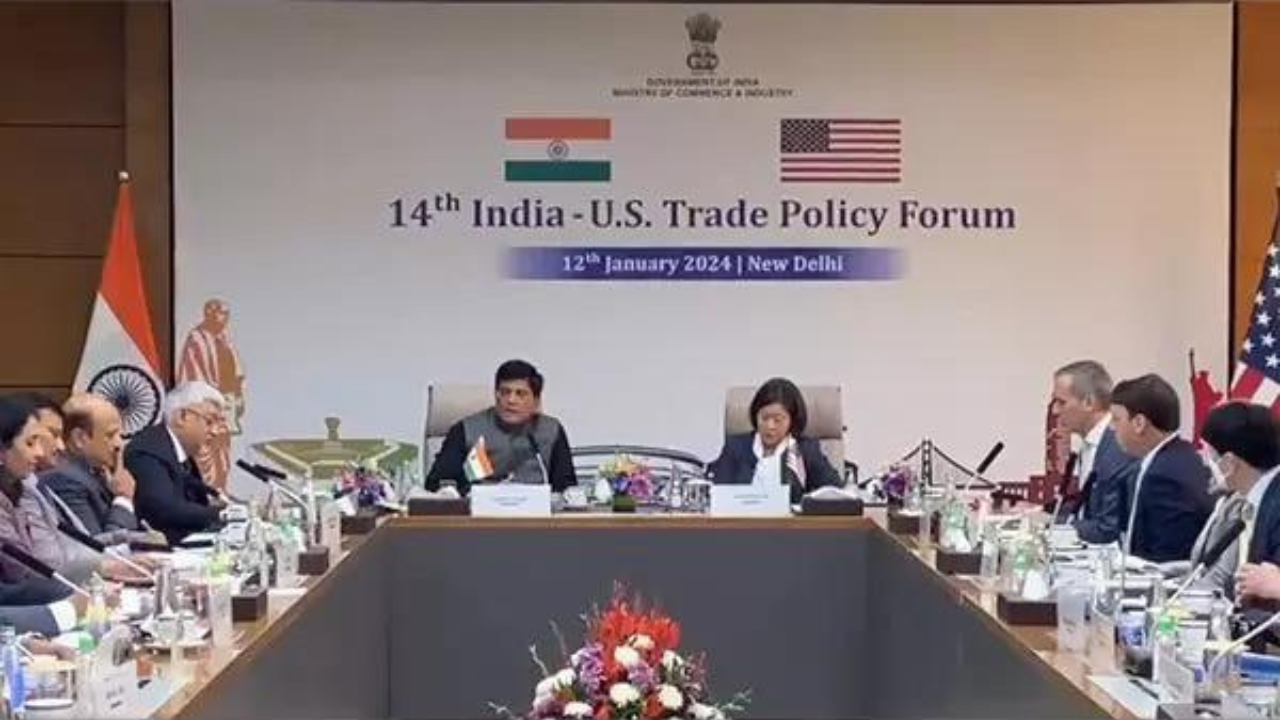NEW DELHI: India has asked the US to allow domestic labs also for irradiation of certain fruits like mangoes with a view to helping exporters cut additional trade costs, an official said. At present, exporters have to carry out irradiation at the US ports, which increases cost and uncertainty in case of rejection of the consignment.
The issue was raised during the 14th India-US Trade Policy Forum meeting here on January 12.
“We have raised the issue of fruit irradiation which they do on their coast. Let it happen here. They can allow Indian labs to do so. It will reduce trade costs in a way,” the official said.
According to international trade experts, several Indian products may require irradiation at the US ports before entering the US market to comply with the Animal and Plant Health Inspection Service (APHIS) regulations and prevent the introduction of harmful pests and diseases.
Think tank GTRI Co-Founder Ajay Srivastava said that a better way is to carry out irradiation in India before exports as modern facilities are available in India that can meet the US import requirements.
Irradiation improves safety of fruits as it kills microorganisms. Irradiation helps eliminate pests without affecting the quality of the fruit.
Irradiation facilities are in Gujarat (Gujarat Agro Gamma Irradiation Facility, Ahmedabad), Maharashtra (Gamma Radiation Services In Ambernath; and Agrosurg Irradiators (India) in Mumbai); Telangana (Gamma Agro medical processing pvt ltd, Pashamylaram), and Tamil Nadu (Gamma Tech India in Kayathar).
Fruits which require irradiation include fresh mangoes, grapes, pomegranates, spices, besides some handicraft, furniture and animal products like hides and skin.
“Indian mangoes are known for their sweetness and flavour but they can harbour fruit flies that pose a threat to US agriculture. Irradiation helps eliminate these pests without affecting the quality of the fruit. Similarly, grapes from India can carry fruit flies and other quarantine pests,” he said.
Irradiation effectively disinfests them for safe entry into the US.
About pomegranates, Srivastava said that the juicy arils of Indian pomegranates are a popular treat, but they can be infested with mealybugs and other insects. Irradiation ensures they arrive pest-free in the US.
“Certain Indian spices, like coriander seeds and fenugreek, can harbour insects and fungal spores. Irradiation helps decontaminate them for safer consumption in the US. Wood can harbour wood-boring beetles and other insects that can damage US forests. Irradiation helps protect US trees from these pests,” he said.
The issue was raised during the 14th India-US Trade Policy Forum meeting here on January 12.
“We have raised the issue of fruit irradiation which they do on their coast. Let it happen here. They can allow Indian labs to do so. It will reduce trade costs in a way,” the official said.
According to international trade experts, several Indian products may require irradiation at the US ports before entering the US market to comply with the Animal and Plant Health Inspection Service (APHIS) regulations and prevent the introduction of harmful pests and diseases.
Think tank GTRI Co-Founder Ajay Srivastava said that a better way is to carry out irradiation in India before exports as modern facilities are available in India that can meet the US import requirements.
Irradiation improves safety of fruits as it kills microorganisms. Irradiation helps eliminate pests without affecting the quality of the fruit.
Irradiation facilities are in Gujarat (Gujarat Agro Gamma Irradiation Facility, Ahmedabad), Maharashtra (Gamma Radiation Services In Ambernath; and Agrosurg Irradiators (India) in Mumbai); Telangana (Gamma Agro medical processing pvt ltd, Pashamylaram), and Tamil Nadu (Gamma Tech India in Kayathar).
Fruits which require irradiation include fresh mangoes, grapes, pomegranates, spices, besides some handicraft, furniture and animal products like hides and skin.
“Indian mangoes are known for their sweetness and flavour but they can harbour fruit flies that pose a threat to US agriculture. Irradiation helps eliminate these pests without affecting the quality of the fruit. Similarly, grapes from India can carry fruit flies and other quarantine pests,” he said.
Irradiation effectively disinfests them for safe entry into the US.
About pomegranates, Srivastava said that the juicy arils of Indian pomegranates are a popular treat, but they can be infested with mealybugs and other insects. Irradiation ensures they arrive pest-free in the US.
“Certain Indian spices, like coriander seeds and fenugreek, can harbour insects and fungal spores. Irradiation helps decontaminate them for safer consumption in the US. Wood can harbour wood-boring beetles and other insects that can damage US forests. Irradiation helps protect US trees from these pests,” he said.


